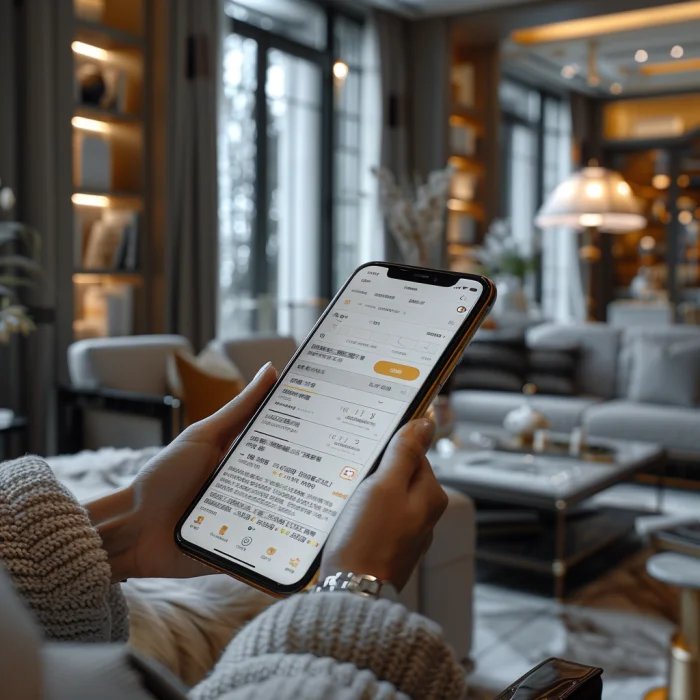A Mobile Booking App is a software application designed for smartphones and other mobile devices, facilitating the process of reserving services or products. Users can book flights, hotels, rental cars, event tickets, and more at their convenience, directly from the app. This innovation has revolutionized the way people plan and manage their activities.
These applications integrate with service providers’ databases to present real-time availability, pricing, and special offers. Users can filter options based on preferences such as dates, locations, and budget. Some apps even offer personalized recommendations, growing smarter over time through AI and machine learning algorithms, enhancing user experience.
The interface of a Mobile Booking App is typically user-friendly, featuring intuitive layouts and simple navigation tools. Security is also a key aspect, with many apps incorporating encryption and secure payment gateways to protect users’ personal and financial information. These elements collectively make mobile booking apps essential tools in the digital age.
In today’s fast-paced world, convenience is paramount, and mobile technology is at the forefront of delivering it. One significant innovation in this realm is mobile booking apps, which have transformed the way we reserve and plan various services. From securing a hotel room to booking a flight, these apps offer unparalleled ease and efficiency.
Mobile booking apps bring numerous benefits to both consumers and service providers. Consumers enjoy streamlined access to a multitude of services at their fingertips, saving time and effort. On the other hand, service providers experience increased bookings and improved customer satisfaction, directly impacting their bottom line.
In this article, we will explore the various facets of mobile booking apps, including their functionalities, advantages, and future trends. We will also look into how these apps are becoming increasingly intelligent, adapting to user preferences, and setting new standards in the digital booking arena.
Key Features to Look for in a Mobile Booking App
A mobile booking app can greatly enhance the convenience and efficiency of making reservations. When selecting one, several key features should be prioritized. Firstly, usability stands at the forefront. A user-friendly interface ensures that even those who are not tech-savvy can navigate the app without issues. Clear instructions and intuitive design are crucial.
Secondly, real-time booking updates are essential. Users must be able to see availability in real-time to avoid double bookings or misunderstandings. This feature also helps in managing expectations and planning around potential slots more effectively.
Next, secure payment options cannot be overlooked. Ensuring that the app uses secure encryption methods to protect users’ financial information builds trust and enhances the user experience. Integrated payment gateways that support a variety of payment methods, including credit cards, digital wallets, and other financial services, are highly advantageous.
Additionally, consider the integration of customer reviews and ratings. This feature allows users to make informed decisions by reading about other people’s experiences. Ratings can serve as a valuable guide to choosing the best options available.
Another important feature is the inclusion of a robust customer support system. Accessible customer service, whether through chat, email, or phone, can greatly enhance user satisfaction by providing quick resolutions to any issues that may arise. Often, a good customer service experience can make or break user loyalty.
Lastly, personalization features can significantly improve user engagement. Options like saving user preferences, personalized recommendations, and tailored notifications create a more engaging and satisfying user experience. This not only aids in retaining users but also encourages frequent use.
In conclusion, usability, real-time updates, secure payments, customer reviews, strong support, and personalization are key features that enrich a mobile booking app. Prioritizing these elements can lead to a more enjoyable and efficient booking experience.
Benefits of Using Mobile Booking Apps for Travelers
Traveling has become more seamless thanks to the advent of mobile booking apps. These applications offer numerous advantages that significantly enhance the overall travel experience. One key benefit is convenience. By using a mobile booking app, travelers can book flights, accommodations, and activities from anywhere at any time. This flexibility eliminates the need to visit travel agencies or wait on hold with customer service.
In addition to convenience, mobile booking apps offer real-time updates. Travelers receive instant notifications about flight delays, gate changes, or itinerary adjustments. This feature helps to reduce anxiety and allows for better travel planning. Furthermore, most apps provide users with the ability to compare prices across different service providers. This ensures that travelers can find the best deals saving both time and money.
Another significant benefit is the availability of customer reviews. Mobile booking apps often include reviews and ratings from previous customers, which can guide future travelers in making informed decisions. This ensures high-quality services and experiences. Moreover, these apps often have loyalty programs. Frequent users can accumulate points or receive special discounts, adding value to each booking.
Ease of navigation is another advantage. User-friendly interfaces make it simple to search and book services, even for those who are not tech-savvy. Payment processes are also streamlined, offering multiple payment options and secure transactions. This aspect is crucial for travelers concerned about data security.
Finally, mobile booking apps can help in managing travel documents. Users can store their boarding passes, hotel reservations, and other essential documents within the app. This reduces the risk of losing important papers and facilitates easier access during the trip.
In summary, mobile booking apps offer unparalleled convenience, real-time updates, cost savings, and added security. They make travel planning more accessible and enjoyable, ensuring a smoother journey from start to finish.
User Interface and Experience: Why It’s Crucial for Mobile Booking Apps
In today’s fast-paced world, mobile booking apps have become essential tools for travelers and event-goers. A well-designed user interface (UI) and user experience (UX) are critical to the success of these applications. When users open an app, they expect a smooth, intuitive experience. If they encounter a confusing layout or difficult navigation, they may quickly become frustrated and abandon the app.
Firstly, a clean and attractive interface creates a positive first impression. A minimalist design can reduce clutter and make key information easy to find. For instance, clear icons and simple menus guide users through the booking process without overwhelming them. This approach by interface designers enhances usability and encourages continued use.
Moreover, seamless navigation is vital. Users should be able to move from one section of the app to another with ease. Smooth transitions and logical flow can significantly enhance the user experience. This aspect is especially important for mobile booking apps since users often make decisions on the go and require quick access to features.
Additionally, responsive design ensures that the app functions well on various devices. Mobile users expect the app to perform consistently on both smartphones and tablets. A responsive UI adapts to different screen sizes, providing an optimal experience regardless of the device used. This consistency builds user trust and reliability.
Furthermore, incorporating user feedback is essential. Regular updates based on user reviews can address common pain points and improve the overall experience. For example, if several users report difficulties with the payment process, addressing this issue promptly can prevent future frustrations.
Finally, visual appeal plays a crucial role in user retention. Attractive color schemes, readable fonts, and high-quality images can make the app more engaging. As a result, users are more likely to return and recommend the app to others.
In summary, investing in an excellent UI and UX for mobile booking apps pays off significantly. It leads to higher user satisfaction, increased retention rates, and ultimately, greater success for the app.
Security Measures to Consider in Mobile Booking Apps
In today’s digital age, the security of mobile booking apps is paramount. As users increasingly rely on these platforms, developers must prioritize robust security measures. First and foremost, encryption is essential. By encrypting data, sensitive information remains protected during transmission. This helps prevent unauthorized access and ensures user data is secure.
Moreover, multi-factor authentication (MFA) adds an additional layer of security. Users are prompted to provide multiple forms of identification before access is granted. MFA often includes a combination of passwords and one-time codes sent to mobile devices or email accounts. Consequently, it significantly reduces the risk of unauthorized access.
In addition to encryption and MFA, regular security updates are crucial. Developers should release updates to address newly discovered vulnerabilities. By doing so, apps remain protected against emerging threats. It is equally important to educate users on the significance of installing updates promptly.
Furthermore, secure application architecture plays a vital role. Segregating different parts of the application reduces the potential impact of a single vulnerability. For example, separating user authentication and transaction processing modules can prevent attackers from gaining complete control.
Data minimization is another key practice. Collecting and storing only necessary data limits the exposure of sensitive information. If a breach occurs, the impact is lessened due to the reduction of stored data.
User awareness and education should not be overlooked. Informing users about safe practices, such as avoiding public Wi-Fi for transactions, enhances overall security. Regular reminders can reinforce the importance of these behaviors.
Lastly, implementing robust monitoring and alerting systems is beneficial. These systems detect and respond to suspicious activities swiftly. Quick detection can mitigate potential damage and help maintain user trust.
In conclusion, securing mobile booking apps requires a multifaceted approach. Prioritizing encryption, MFA, regular updates, secure architecture, data minimization, user education, and monitoring ensures a safer experience for all users.
The Future of Mobile Booking Apps: Trends and Predictions
Mobile booking apps have significantly transformed various industries, making bookings more seamless and accessible. Looking ahead, several trends and predictions emerge as pivotal in shaping the future of these applications.
First, the integration of artificial intelligence (AI) and machine learning is becoming more prevalent. Personalized recommendations will be enhanced by analyzing user behavior and preferences. As a result, users will experience more tailored suggestions that closely match their needs.
Furthermore, voice-activated bookings are expected to gain popularity. With the increasing use of virtual assistants, it is likely that users will prefer making bookings through voice commands. This trend not only enhances convenience but also aligns with the shift towards hands-free operations.
Another important trend is the rise of augmented reality (AR) and virtual reality (VR) in mobile booking apps. These technologies allow users to explore destinations, hotel rooms, or event venues in a virtual environment before making a decision. This immersive experience can significantly improve user satisfaction, providing a more realistic preview of their choices.
In addition, enhanced security measures will be a key focus. With the growing concerns around data privacy, developers are investing in advanced encryption technologies to safeguard user information. Secure payment gateways and multi-factor authentication are becoming standard features to ensure a safe booking experience.
The integration of blockchain technology is also on the horizon. Blockchain can bring increased transparency and trust to the booking process. Decentralized ledgers ensure that all transactions are recorded and immutable, reducing the risk of fraud.
Mobile booking apps are also expected to offer more comprehensive and unified travel experiences. Users will be able to manage all aspects of their trips, from transportation to accommodation and activities, within a single platform. This integration simplifies the process and enhances user convenience.
In conclusion, the future of mobile booking apps is poised for significant advancements. By embracing AI, voice commands, AR, enhanced security, blockchain, and unified platforms, these apps will continue to evolve, offering users a more efficient and enjoyable booking experience.



